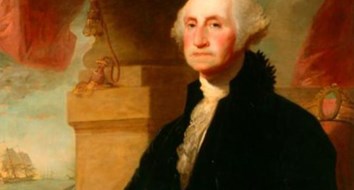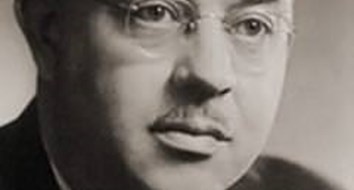October 14th is an important but overlooked day in American history. It marks the birth of William Penn, founder of Pennsylvania and an important influence on America. With this year also being the 300th anniversary of his death, his birthday may merit even more attention now.
William Penn's Passion for Freedom
Before Pennsylvania was founded, Penn defended the British rights on which Americans’ rights would be built.
Penn joined the Quakers at the age of 22. Because they dissented from the state religion and refused to take loyalty oaths, he became an outsider in British society. He was expelled from Oxford and arrested several times.
Put on trial for preaching at a Quaker gathering, he asked to exercise his legal right to see the charges brought against him because, as he said:
[I]f these ancient and fundamental laws, which relate to liberty and property…must not be indispensably maintained and observed, who then can say that he has a right to the coat on his back? Certainly our liberties are to be openly invaded…our estates led away…forfeits for conscience’s sake.” Later, Penn wrote that “no human authority can, in any case whatever, control or interfere with the rights of conscience.
The judge—the Lord Mayor of London—refused and pressed the jury for a conviction, but the jury found him innocent. The Lord Mayor then sent him back to jail for contempt of court and also fined and jailed the jury. They fought back from prison. The result wrested English juries from judicial control so that verdicts could not be coerced and juries could not be punished for verdicts the government disliked, providing what Penn termed “the insurance which we have on our lives and property” against government abuse.
Pennsylvania: the Template for America
His treaty with the natives at Shackamaxon as “the only treaty between [natives and Europeans]…that was never infringed.”
When Charles II died, a large debt to Penn’s father was settled in 1681 by granting him what would become Pennsylvania. Penn implemented his authority over the colony in his 1682 Frame of Government, Pennsylvania’s first constitution. Despite being answerable only to the King, Penn provided for elected representatives, a separation of powers, religious freedom, and fair trials, all of which were incorporated in our Constitution.
When in Pennsylvania, Penn led by example. He treated Native Americans fairly in disputes with whites. He insisted their lands be purchased rather than conquered or stolen. Voltaire praised his treaty with the natives at Shackamaxon (commemorated in a frieze on the U.S. capital) as “the only treaty between [natives and Europeans]…that was never infringed.”
William Penn: an Example of Liberty
Penn also anticipated the ideals of the Declaration of Independence:
Men being born with a title to perfect freedom and uncontrolled enjoyment of all the rights and privileges of the law of nature…no one can be put out of his estate and subjected to the political view of another, without his consent.
Penn’s experience of abuse at government hands made him fully committed to freedom because “no human authority can, in any case whatever, control or interfere with the rights of conscience,” so that “people…may be better managed by wisdom than ruled by force.” As he wrote, “it is not reasonable that men should be compelled,” from which it followed that “I shall not usurp the right of any, or oppress his person.”
Jim Powell wrote:
William Penn was the first great hero of American liberty… Penn established an American sanctuary which protected freedom of conscience… He gave Pennsylvania a written constitution which limited the power of government, provided a humane penal code, and guaranteed many fundamental liberties. For the first time in modem history, a large society offered equal rights to people of different races and religions.
Penn’s importance to America was great enough that President Ronald Reagan proclaimed him an honorary citizen “whose contributions to its traditions of freedom, justice, and individual rights have accorded them a special place of honor…and to whom all Americans owe a lasting debt.”
In Jim Powell’s words, “Penn set an enormously important example for liberty. He showed that people who are courageous enough, persistent enough, and resourceful enough can live free,” going beyond noble rhetoric to “how a free society would actually work.” At a time when our freedoms are far narrower than his vision, Penn’s commitment to a free society needs rediscovery.





